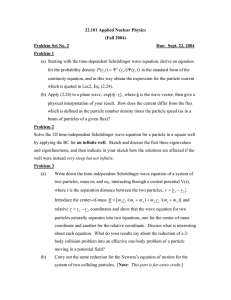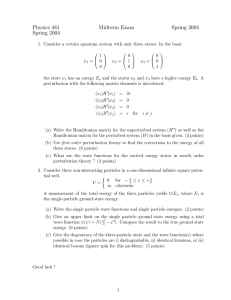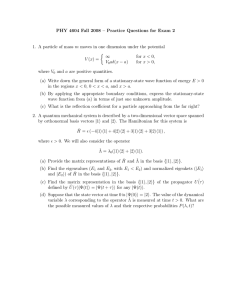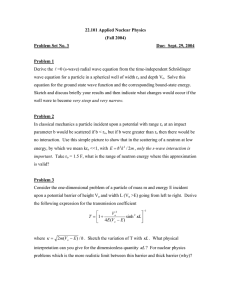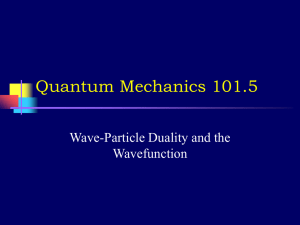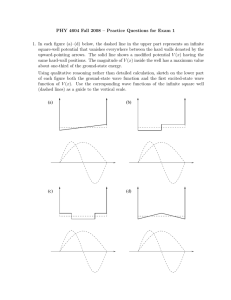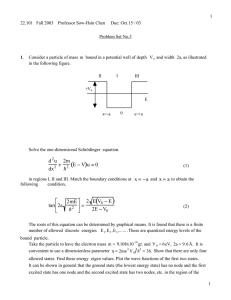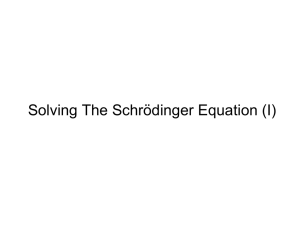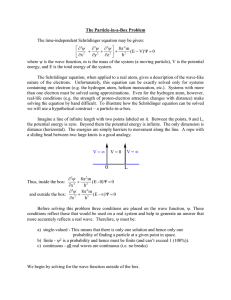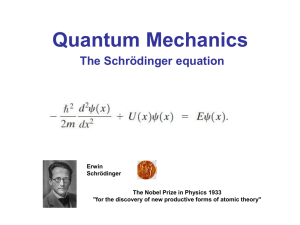22.101 Applied Nuclear Physics (Fall 2006) Problem Set No. 2 Problem 1
advertisement
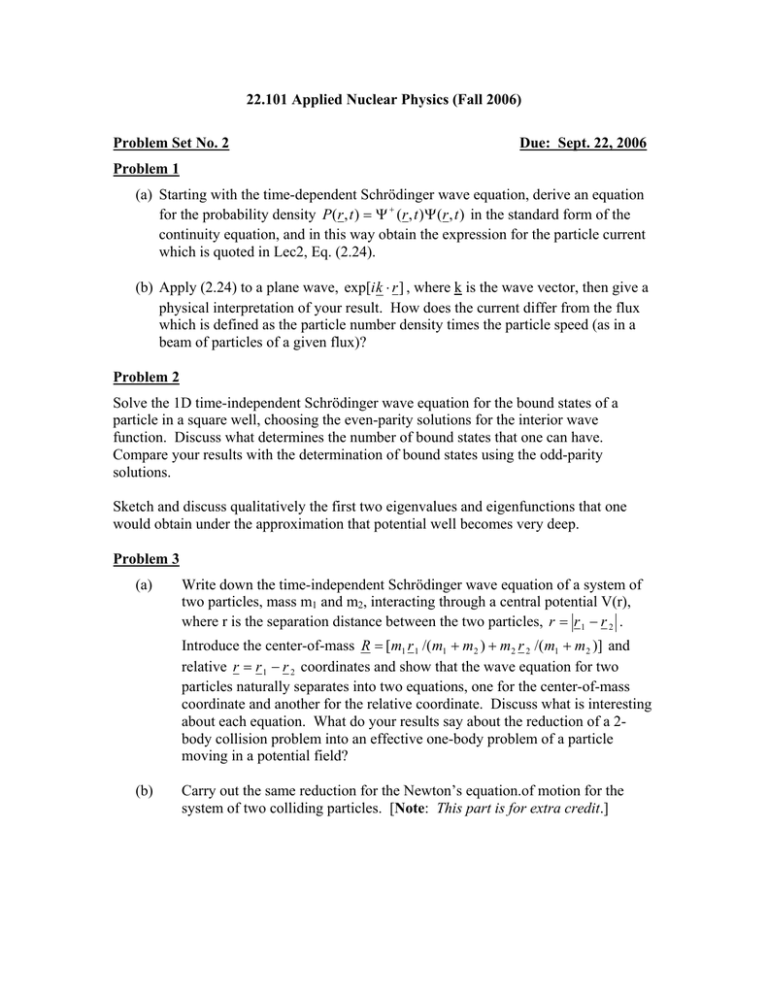
22.101 Applied Nuclear Physics (Fall 2006) Problem Set No. 2 Due: Sept. 22, 2006 Problem 1 (a) Starting with the time-dependent Schrödinger wave equation, derive an equation for the probability density P(r,t) = Ψ + (r,t)Ψ(r,t) in the standard form of the continuity equation, and in this way obtain the expression for the particle current which is quoted in Lec2, Eq. (2.24). (b) Apply (2.24) to a plane wave, exp[ik ⋅ r] , where k is the wave vector, then give a physical interpretation of your result. How does the current differ from the flux which is defined as the particle number density times the particle speed (as in a beam of particles of a given flux)? Problem 2 Solve the 1D time-independent Schrödinger wave equation for the bound states of a particle in a square well, choosing the even-parity solutions for the interior wave function. Discuss what determines the number of bound states that one can have. Compare your results with the determination of bound states using the odd-parity solutions. Sketch and discuss qualitatively the first two eigenvalues and eigenfunctions that one would obtain under the approximation that potential well becomes very deep. Problem 3 (a) Write down the time-independent Schrödinger wave equation of a system of two particles, mass m1 and m2, interacting through a central potential V(r), where r is the separation distance between the two particles, r = r 1 − r 2 . Introduce the center-of-mass R = [m1 r 1 /( m1 + m2 ) + m2 r 2 /( m1 + m 2 )] and relative r = r 1 − r 2 coordinates and show that the wave equation for two particles naturally separates into two equations, one for the center-of-mass coordinate and another for the relative coordinate. Discuss what is interesting about each equation. What do your results say about the reduction of a 2­ body collision problem into an effective one-body problem of a particle moving in a potential field? (b) Carry out the same reduction for the Newton’s equation.of motion for the system of two colliding particles. [Note: This part is for extra credit.]
